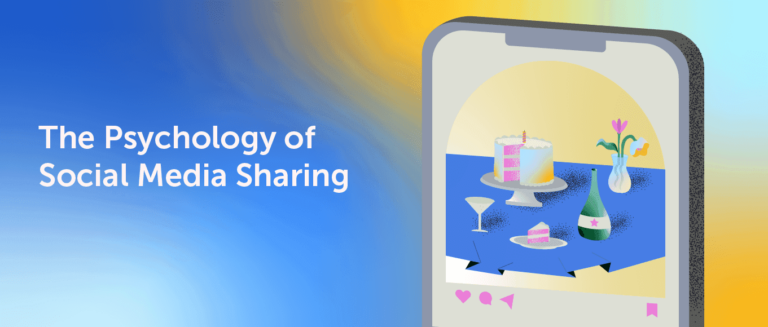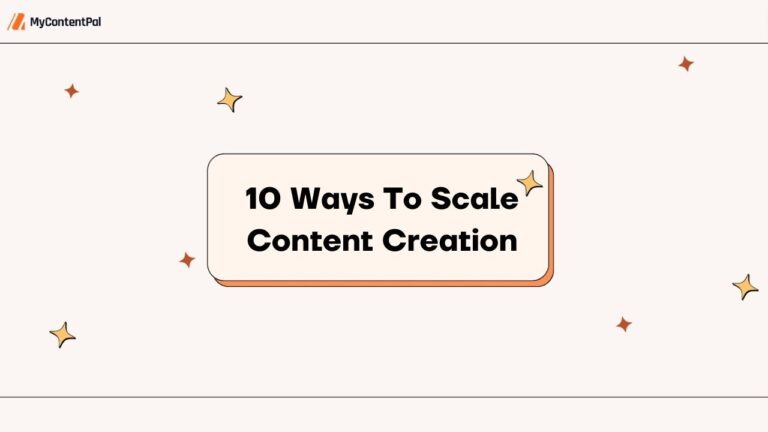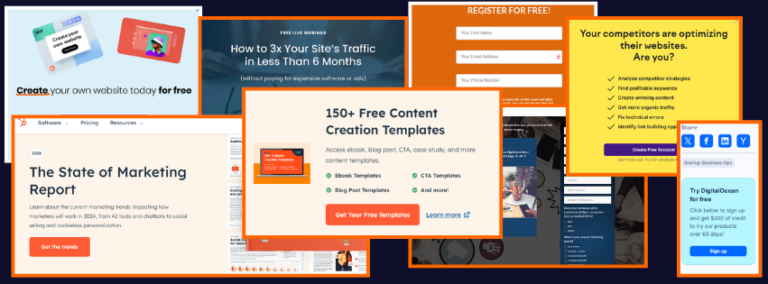B2B content marketing trends and tactics are ever-changing, but one thing is certain: content marketing is here to stay.
So, the question isn’t whether it will be around 10 years from now; it’s about what it will look like. 2023 brought a massive evolution to content marketing, especially when it comes to embracing AI. However, one thing remains at the base of all these trends: Authenticity and human feel are where content marketing is heading.
Staying on top of content marketing trends and tactics is the best and only way to ensure your business doesn’t fall behind.
In this article, I’ll discuss the future of content marketing and how you can leverage it for your business’s marketing strategies.
Key Takeaways
- Staying ahead of the 2024 content marketing trends on AI, SEO, and SGE can help you significantly. This means you can keep your human touch; after all, it is clear that AI is not the future – we are!
- Use AI to help you with insights so you can spend more time creating engaging, high-quality content that resonates with consumers on a human level.
- Ensure your content marketing strategies prioritise social media channels in conjunction with Google. This will ensure you reach far and wide, leaving no screen estranged from your brand!
So, use AI as a helper; focus on creating relevant and engaging content that resonates with your target audience; and make sure to have a strong presence on all social media channels.
Top Content Marketing Strategies To Use In 2024

The future calls for a significant shift in your content marketing strategy. The development of AI (and other marketing tools) and their ability to create content is increasing every day. So, you need to understand how harnessing its powers and pairing it with human knowledge and feeling can impact the success of your business’s content marketing.
So, let’s dive into my top content marketing strategies to do this.
Don’t be shy of AI

First and foremost, we need to stop running away from AI.
I understand that it can be scary; we’re all a little terrified of its abilities. But with all this talk about how robots will start replacing humans, maybe it’s time we beat them to it. The fact of the matter is, yes, AI is the future, but authenticity and human feel are also a significant part of it.
Consumers still want answers and advice from trusted human sources. This is why we need to use AI as our “helper” rather than our primary doer.
This means you should develop a content marketing concept that will inherently be human and authentic. Then, use AI to help you broaden the concept and develop new facets of the marketing idea. This way, you can rest easy knowing you did the work and your helpful friend just lightened the load.
Let’s dive deeper into this.
AI: A supporting role in content creation and content marketing trends
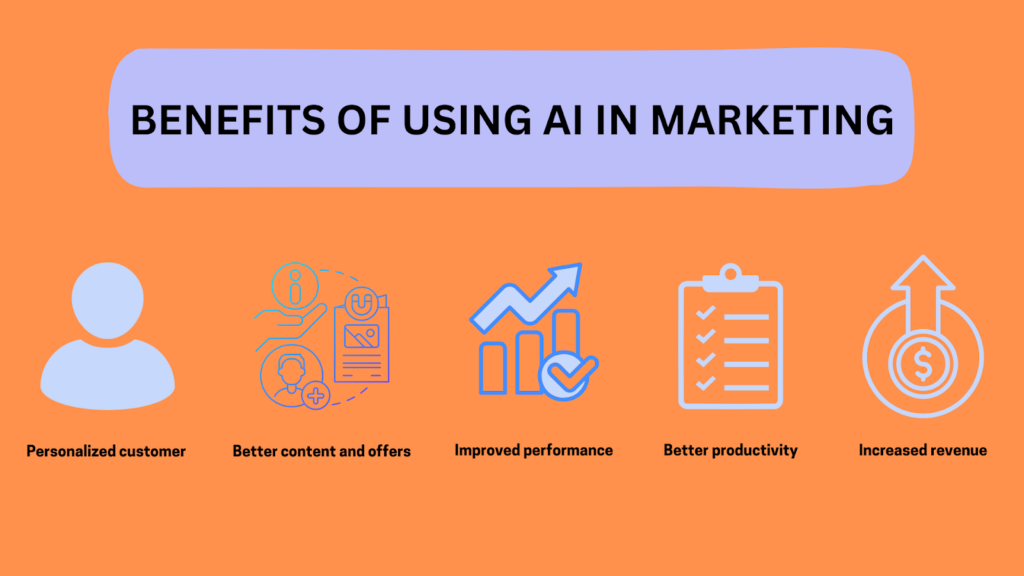
When I say we should embrace AI, I am not referring to entirely machine-generated content. I mean that AI should be used more as a support system in your content strategy and less in creating marketing content. Using it on its own to produce large quantities of AI-generated content will eliminate the human and authentic aspect of content marketing, which we don’t want.
So, how do we use AI to make human, interactive content?
Well, you can use it to do three main things:
- Better your understanding of your consumer/audience.
- Identify the most prevalent trends happening online.
- Assist in getting data and research (this is the real-time saver).
By using this tool to do these three things, you get the optimisation of AI with the freedom to write human-written content.
So, if you can take away one thing from this section, AI mustn’t replace writers and marketers; it must work as an assistant. This is the dream team for creating emotive, impactful, and compelling content.
It is important to note that AI tools are much more accessible than they used to be. This means that all marketers can use them, levelling the playing field.
The intersection of SEO and AI

SEO will remain a crucial part of the content marketing landscape in 2024. Let’s be honest, SEO is a strategic, proven way to ensure your content reaches the top of everyone’s SERPs – it will never be outdated. However, it must adapt to suit the current surge of AI-generated content. This is where the fun comes in.
SEO tools are the most effective way to find out what consumers are looking for with keyword research. In other words, using SEO tools will assist you in finding out people’s search intent in relation to your business. So, it helps you develop marketing strategies that speak to this.
Using AI in conjunction with SEO will give you a greater understanding of user engagement, content performance, and keyword efficacy. It assists in producing content that is highly relevant and interesting for your audience and is SEO-friendly. With the help of SEO’s reach and AI’s insights, organisations can deliver highly personalised content with a real impact.
The key to success in 2024 will be creating authentic, positive, and relevant content using AI in conjunction with SEO.
Make friends with SGE (it’s here to stay)

SGE, or Search Generative Experience, has made its debut. This new aspect of Google search has leveraged AI tools into the search engine, providing users with AI-generated answers to all their questions. While this may be beneficial for consumers, it poses some obstacles for businesses.
The primary obstacles to overcome will be a decrease in clickthrough, fewer adverts shown, and more opportunities for users to ask long-winded questions (this might pose a problem for SEO).
So, what does this mean for content marketing?
It just means we need to roll with the punches and adapt.
The first thing you need to do is ensure that your website is even more conducive to conversions than ever before. Because less traffic to websites has been predicted, you need to ensure that the people who land on your website actually convert.
The rise of short-form video content

If you think content marketing trends stop at written content, think again. Short-form videos are a significant part of what’s to come for the future of content marketing. It’s been found that 26% of marketing professionals plan to boost their investment in short-form videos in 2024 over all other forms of content.
Short-form videos are becoming one of the most highly effective marketing strategies. This is mainly due to the use of TikTok, a social media platform that posts short videos from 15 seconds to 10 minutes.
Short-form videos work because they do an incredible job of capturing consumer attention, especially when they see a human talking behind the camera.
A quick, choppy video requires little focus and effort to watch, and that’s why people respond well to it; it’s easy to digest. In fact, 96% of people reported that they would rather watch a short-form video to learn about a service or a product.
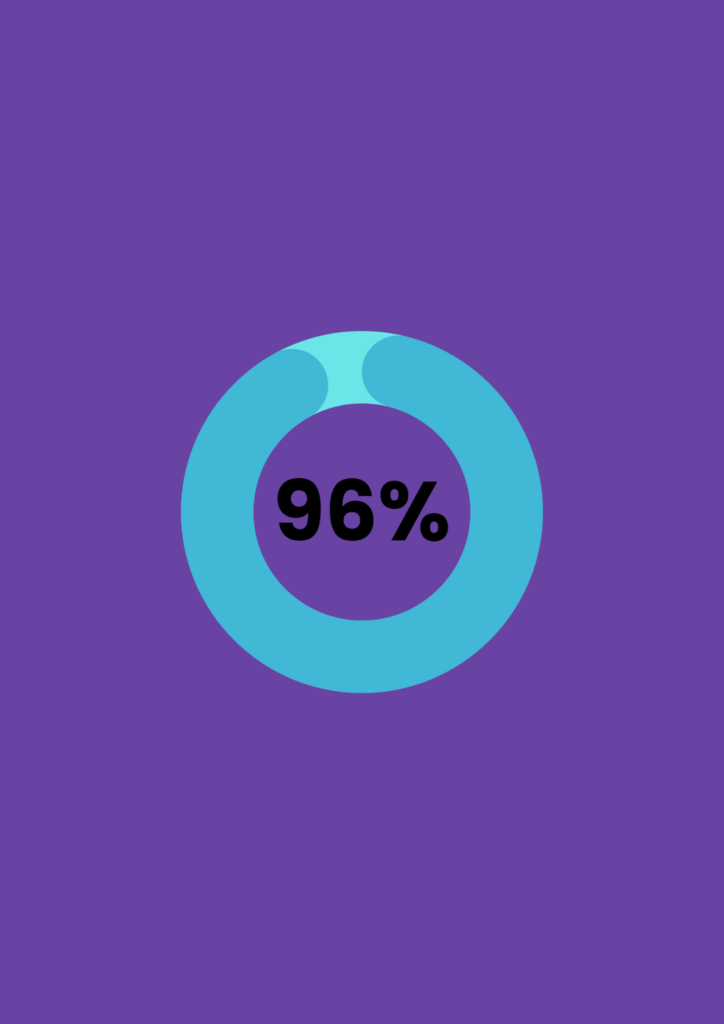
It’s not just TikTok, though. Other social media platforms like Instagram, Facebook, YouTube, and LinkedIn have also added short-form video features.
Content marketers must create short-form video content optimised for discovery. Put simply, it means using the most trending songs or sounds, filters and online challenges to stay current and noticeable.
Influencer marketing
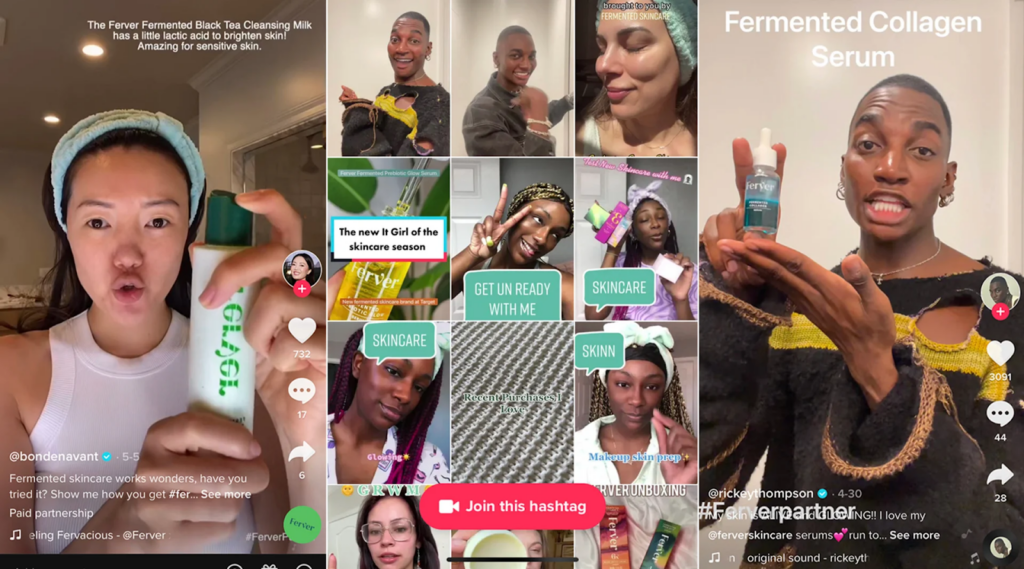
My next prediction for 2024 is a significant surge in influencer marketing.
Influencer marketing is mainly built on the trust between an influencer and a consumer. That’s why it works so well—it’s the most humanistic marketing strategy.
Think about it this way: If your best friend tells you that a product changed their life, you are far more likely to be influenced to buy it than if you see it in an advert on the back of a bus.
Influencers have become unbelievably personal for consumers, especially the youth, and have formed trusted bonds with their viewers.
You must leverage this, as audiences want real stories rather than static content. After all, content is easy to create, but trust is the hottest (and most challenging) commodity for the future of content marketing.
And, the numbers back this up. Influencer marketing is predicted to grow to $24 billion by the end of 2024.
Furthermore, a survey indicated that a whopping 59.4% reported that they will be increasing their budget for influencer collaborations and marketing within the next year.
Social platforms will continue to be the primary marketing channel
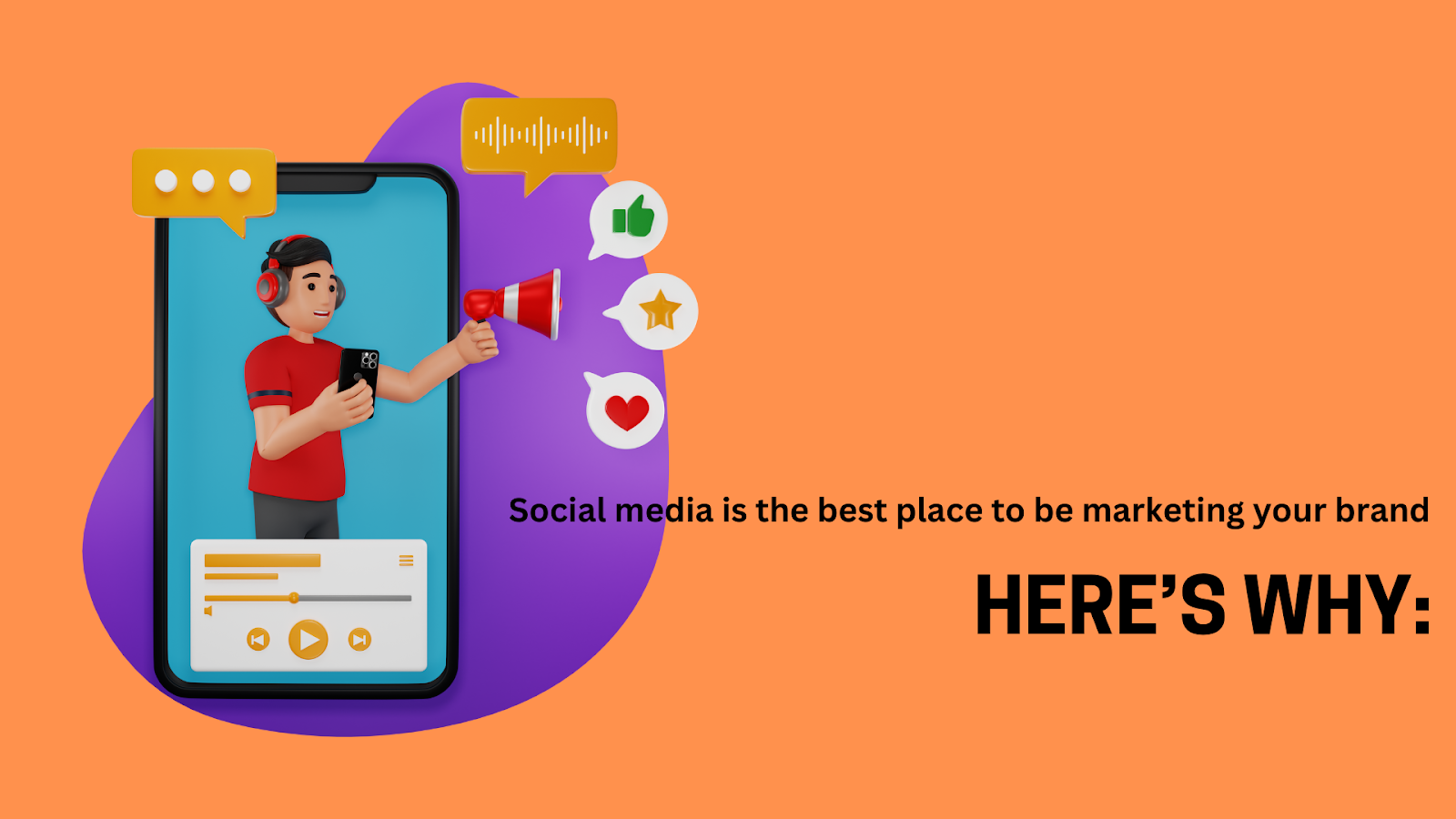
There is no channel with more user traffic than social media; this is a simple fact. This includes Facebook, X (Twitter), Instagram, TikTok and LinkedIn. Stats show that even in 2022, 44% of businesses already used it as their primary marketing channel. This outranked blogs, email, content, influencer, and SEO marketing at the time.
In 2024, using social media for content marketing is set to grow even more. At the start of April 2024, it was reported that 5.07 billion people worldwide use social media daily. If it follows the same pattern, in 2025, there will be an increase of more than a quarter of a billion users on social media.
What’s even more remarkable is the ad expenditure on social media channels. In 2023, ad spending reached around $270 billion and is predicted to surpass $300 billion by the end of 2024. This indicates just how much businesses invest in marketing their products/services on social media.
Due to the sheer volume of people they can reach, it’s no wonder companies are starting to leverage social media as a primary marketing channel.
Another benefit is that customers can directly communicate with the brand they are engaging with on social media, which aids in forming a more trusting, personal relationship between brand and consumer.
Optimising content for all channels
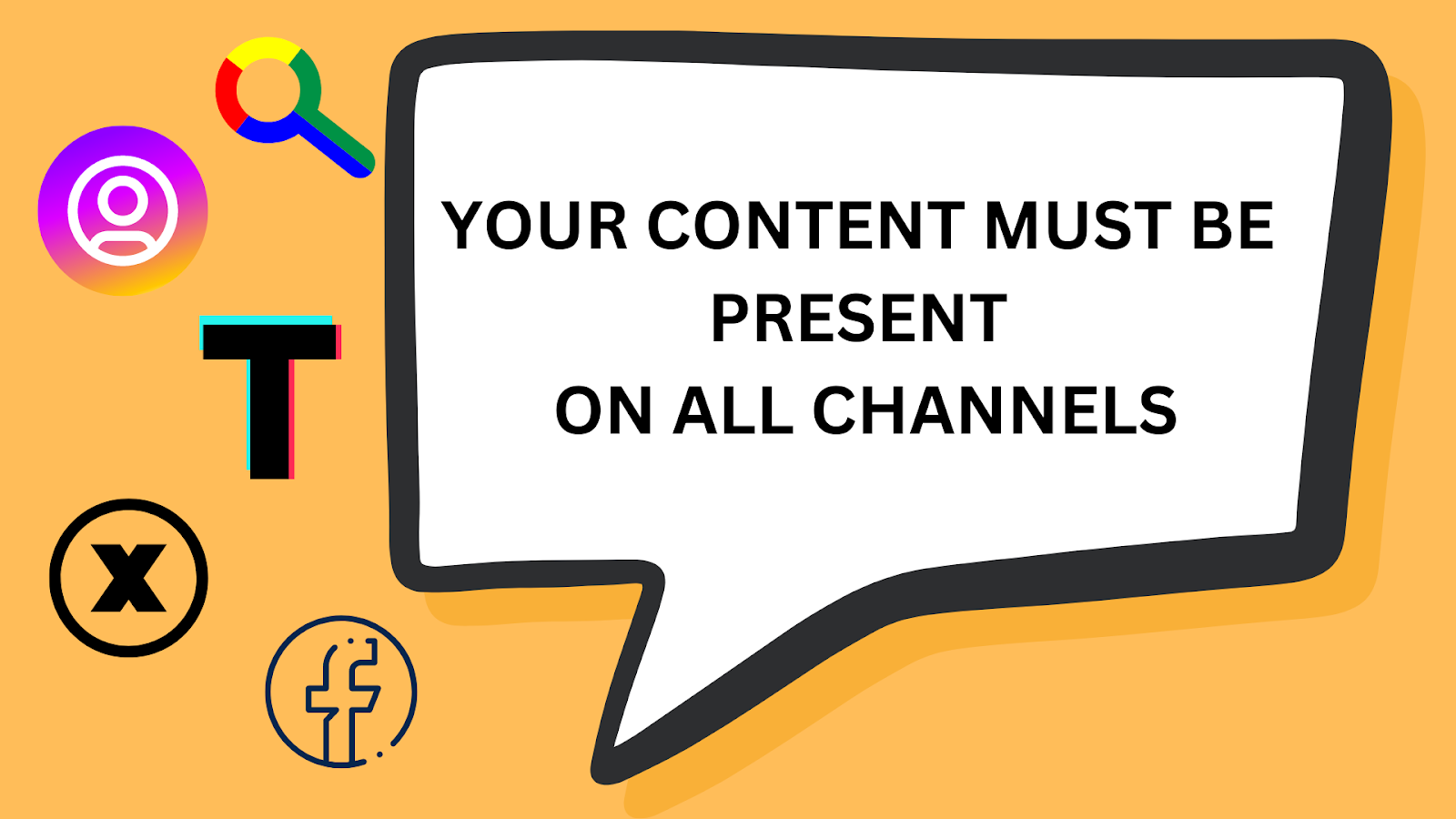
It is vital to understand that consumers are searching differently than they used to. Google is only one of the many places people are looking for answers.
This is especially true for younger demographics, who are literate in all forms of social media. They know the ins and outs of their social media platforms and have worked out which ones are best for helping them with different sectors of their everyday lives. This includes researching “best brands for…”, recipes, travel, current events, etc.
For instance, TikTok has become an entertainment platform and an information source. To back this statement up, it has been found that 40% of TikTok users use it as an information source, and this number will keep increasing as the platform’s users increase.
What’s even more remarkable is the Gen Z usage. It has been found that 74% of this demographic use TikTok for information search purposes, while 51% prefer it to Google!
So, what does this mean for you and your future content marketing strategy?

Well, it means that you need to prioritise showing up on all forms of social media in conjunction with Google and ensure that your content on all these platforms follows the same themes.
The easiest and most effective way to do this is to repurpose content from one platform to another, making sure to translate it into pieces of information suitable for each platform they are going on.
The more channels you cater for, the more engagement, trust and sales you will acquire from consumers.
FAQs
Which social media is most popular for marketing?
The most popular social media platform for marketing in 2024 is Facebook. This is due to a couple of factors:
- It has 3.03 billion active users.
- It has the most diverse age demographic, with users aged 18 to 65+. This means marketers have a diverse range of consumers to target, all in one place.
What are the four main purposes of content marketing?
Content marketing educates, entertains, inspires and convinces (E-E-I-C). Keeping these four pillars in mind while creating content for your business marketing will ensure that you get the desired outcome from consumers.
What is the difference between digital marketing and content marketing?
The primary distinction between the two types of marketing is that content marketing is more covert and indirect than digital marketing. The main objective of content marketing is to educate and gain the trust of potential clients, while digital marketing aims to convert viewers more overtly.
How will AI change content marketing?
Personalised content distribution is one of the main ways AI will transform content marketing. AI algorithms may analyse large volumes of user data, such as browsing patterns, social media activity, and past purchases. This will provide insights into the preferences and interests of specific users, making content marketing more personal to each person.
Final Thoughts
The future of content marketing is vast, and with so much innovation and change to come, I get it if you were scared before reading this article. However, if there is one thing you can take away from this, it is that if you stay up to date with trends and innovations, your content marketing strategies will reap the benefits.
I understand this can be a little scary if content marketing isn’t your strongest skill. So, if you want to focus less on the analytical and strategic side of things and stick to what you love, My Content Pal will do all the SEO heavy lifting for you. All you need to do is book your strategy call today.
